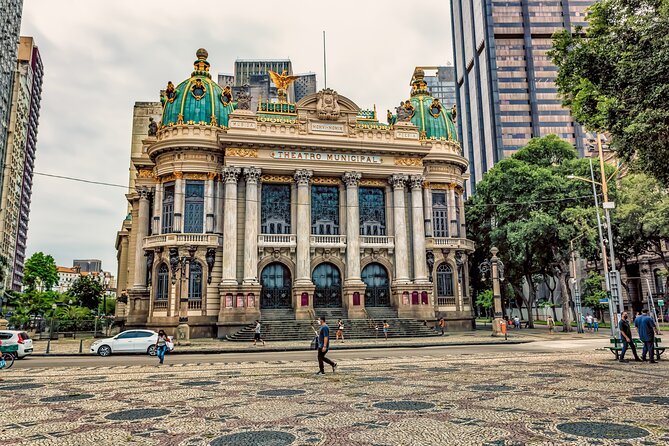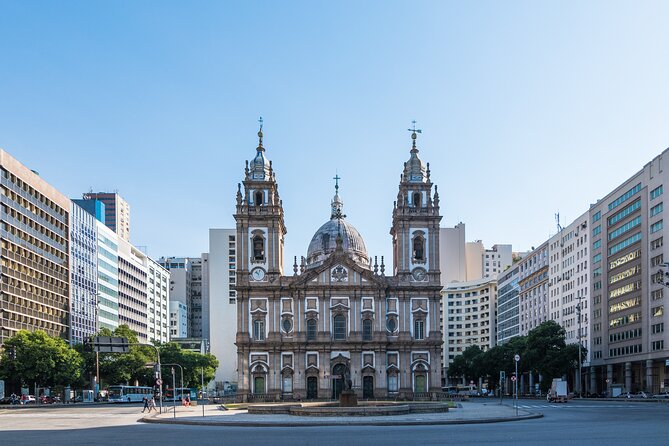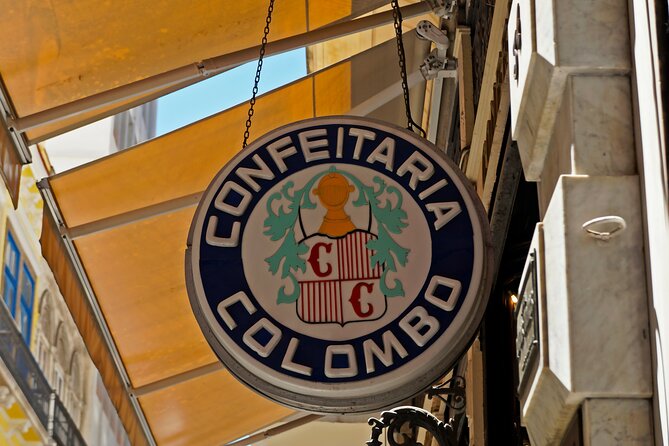The "Self-Guided Tour of Rio’s Journey from Colonialism to Democracy" offers visitors a unique opportunity to explore the city’s rich historical evolution. Starting at Praça Quinze de Novembro, one can navigate through significant landmarks, unraveling the architectural diversity and the struggles that shaped Brazil’s democratic foundation. The tour provides a profound understanding of the country’s historical context, inviting travelers to delve deeper into the intriguing narrative that has defined Rio’s transformation from a colonial outpost to a vibrant metropolis. Whether you’re a history enthusiast or simply curious about the city’s past, this self-guided experience promises to captivate and enlighten.
Key Points

-
Explore Rio de Janeiro’s historical transformation from a colonial outpost to the capital of independent Brazil, focusing on the city’s democratic evolution.
-
Visit the iconic Praça Quinze de Novembro, the starting point for the self-guided "Rio’s Journey from Colonialism to Democracy" tour, featuring colonial architecture and the Imperial Palace.
-
Discover the opulent interiors of the Imperial Palace, now the National Historic Museum, and gain insights into Brazil’s imperial history and the transition to democracy.
-
Engage with exhibits and displays at the Federal Justice Cultural Center, highlighting the judiciary’s role in Brazil’s democratic journey and landmark legal decisions.
-
Appreciate the diverse architectural landscape of Rio, spanning colonial, Eclectic, Art Nouveau, and modernist styles, reflecting the city’s evolution from a colonial outpost to a modern metropolis.
Historical Overview of Rio De Janeiro

Rio de Janeiro has a rich and complex history, evolving from a colonial outpost to a vibrant, cosmopolitan city. Founded in 1565, the city was the capital of colonial Brazil under Portuguese rule.
It later became the capital of the United Kingdom of Portugal, Brazil, and the Algarves in 1808, and the capital of the independent Brazilian Empire in 1822. Throughout its history, Rio has witnessed significant political and social transformations, from the abolition of slavery to the hotel of a democratic government.
Today, the city is renowned for its stunning natural beauty, lively culture, and diverse population, making it a popular tourist destination and a symbol of Brazil’s dynamic heritage.
Loving the local insights? Here are more guided experiences we recommend in Rio de Janeiro

At the meeting point of this self-guided tour, travelers will find themselves in the vibrant Praça Quinze de Novembro, situated in front of the Paquetá boat station along the Guanabara Bay.
This historic square serves as the starting point for the "Rios Journey from Colonialism to Democracy" tour. Visitors can explore the area’s colonial architecture, including the landmark Imperial Palace and the Paquetá building, which once housed the city’s port administration.
The square is easily accessible via the blue Line 1 or yellow Line 3 of the metro, alighting at the Sete de Setembro station. From here, the tour will guide travelers through Rio’s rich history and transition to democracy.
Exploring the Imperial Palace

After departing from Praça Quinze de Novembro, visitors will encounter the impressive Imperial Palace. This grand structure was the official residence of Brazil’s emperors and now houses the National Historic Museum.
Explore the opulent interiors, including the Throne Room, with its gilded decor and intricate chandeliers. Admire the palace’s stunning architecture, blending European and Brazilian influences.
Don’t miss:
- The Imperial Chapel, with its exquisite religious artwork
- The Baroque-style Ballroom, where royal celebrations once took place
- The Banquet Hall, showcasing the extravagance of imperial dining
- The Imperial Library, housing a vast collection of historic books
- The imperial gardens, offering a tranquil respite from the city.
Encountering Brazil’s Democratic Transition
The journey continues as visitors leave the grandeur of the Imperial Palace behind and turn their attention to a pivotal moment in Brazil’s history.
The tour explores the country’s transition to democracy, a journey marked by both challenges and progress.
Travelers will discover how Brazil’s citizens fought for their rights, ultimately paving the way for a new era of freedom and self-governance.
Through insightful commentary and immersive experiences, the tour offers a comprehensive understanding of this transformative period, shedding light on the complexities and resilience of the Brazilian people.
As the tour unfolds, visitors gain a deeper appreciation for the nation’s democratic foundations and its ongoing evolution.
Visiting the Federal Justice Cultural Center
Visitors frequently arrive at the Federal Justice Cultural Center (CCJF), a striking landmark that stands as a symbol of Brazil’s democratic journey.
The CCJF offers a rich exploration of the country’s legal and political history, with engaging exhibits and interactive displays. Visitors can:
- Learn about the role of the judiciary in Brazil’s transition to democracy
- Explore the architecture and design of the modernist building
- Attend lectures, workshops, or cultural events hosted at the center
- Discover the impact of landmark legal decisions on civil rights and social justice
- Enjoy the center’s peaceful gardens and public spaces.
As the final stop on the "Rio’s Journey from Colonialism to Democracy" tour, the CCJF provides a fitting conclusion to this immersive exploration of Brazil’s past and present.
Here are more great tours and experiences we've reviewed in Rio de Janeiro
Appreciating Rio’s Architectural Diversity

As one leaves the Federal Justice Cultural Center, Rio’s architectural diversity unfolds across the cityscape. From the colonial-era buildings lining the cobblestone streets to the modernist high-rises that define the skyline, the city’s architectural legacy reflects its tumultuous history.
| Era | Style | Notable Examples |
|---|---|---|
| Colonial | Baroque, Neoclassical | Paço Imperial, Igreja de Nossa Senhora do Carmo |
| Early 20th Century | Eclectic, Art Nouveau | Theatro Municipal, Palácio Monroe |
| Mid-20th Century | Modernist | Ministério da Educação e Saúde, Museu de Arte Moderna |
This diverse architectural landscape tells the story of Rio’s journey from a colonial outpost to a vibrant, modern metropolis, inviting visitors to explore the city’s rich cultural heritage.
Tour Logistics and Accessibility
A self-guided audio tour allows visitors to explore Rio de Janeiro’s journey from colonialism to democracy at their own pace.
The tour’s meeting point is Praça Quinze de Novembro, in front of the Paquetá boat station, accessible via the blue Line 1 or yellow Line 3 to Sete de Setembro station.
The tour ends at the Federal Justice Cultural Center (CCJF) on Av. Rio Branco, 241.
The tour is available from February 5, 2024, to July 20, 2025, 24/7.
Features include:
- Wheelchair accessible
- Service animals allowed
- Near public transportation
- Most travelers can participate
- Private tour/activity
Frequently Asked Questions
What Is the Total Duration of the Self-Guided Tour?
The tour doesn’t specify a total duration. It’s a self-guided experience, so the time needed depends on the participant’s pace and interests while exploring Rio’s history from colonialism to democracy using the VoiceMap audio tour.
Are Tour Materials Available in Languages Other Than English?
The tour materials are available only in English. The VoiceMap audio tour provides lifetime access to the self-guided tour in English, and the VoiceMap app is compatible with both Android and iOS devices.
Is the Tour Audio Narration Played Automatically or User-Controlled?
The tour audio narration is user-controlled, allowing participants to start, pause, and resume the audio at their own pace as they explore the self-guided walking tour.
Can the Tour Be Completed in a Single Day or Requires Multiple Visits?
The tour can be completed in a single day, as it offers lifetime access to the audio, maps, and geodata. Participants can explore the journey at their own pace using the VoiceMap app, with offline access available.
Is There a Recommended Attire or Dress Code for the Tour?
There’s no specific dress code for this self-guided audio tour. Participants can wear comfortable walking shoes and clothing suitable for the weather. The tour takes place outdoors, so layering and sun protection may be advisable.
Recap
The self-guided tour of Rio’s journey from colonialism to democracy offers a captivating exploration of the city’s rich history and architectural diversity. Visitors can enjoy the struggles and triumphs of Brazil’s democratic transition, gaining a deeper understanding of the country’s historical context. The tour’s flexibility and accessibility make it an engaging and informative experience for anyone interested in understanding Rio’s profound transformation.
More Guided Tours in Rio de Janeiro
More Tours in Rio de Janeiro
- Rio De Janeiro: Downtown Walking Tour
- Unforgettable Private Day Tour in Rio – Santa Teresa and Downtown
- Rio Shore Excursion: Christ Redeemer, Sugarloaf and Selarón Steps 6-Hour Tour
- Half-Day Tour in Rio De Janeiro
- Private Speedboat Tour in Rio De Janeiro
- Petropolis the Imperial City With Beer Tour and Lunch
More Tour Reviews in Rio de Janeiro
- Discover Noronha: 7-Hour Ilhatour Adventure
- Private Sugar Loaf With Fast Pass Ticket and Hotel Pick up
- Rio De Janeiro: 30-Minute Tandem Paragliding Flight
- Rio De Janeiro: Vasco Da Gama Matchday Experience With Local
- Rio Essencial: the 3 Must-See Tourist Attractions
- From Rio: Arraial Do Cabo Day Trip With Boat Tour
Not for you? Here's more things to do in Rio de Janeiro we have recnetly reviewed
- 6 Best Canoe And Kayak Experiences In Rio De Janeiro
- 6 Best Canoe And Kayak Experiences In Rio De Janeiro
- 14 Best Food Tours in Rio De Janeiro
- 20 Best Full-Day Tours in Rio De Janeiro
- 2 Best 2 Day Tours In Rio De Janeiro
- 3 Best 3 Day Tours in Rio De Janeiro
- Best Jet-Ski Experiences in Rio De Janeiro
- 2 Best 4 Day Tours in Rio De Janeiro
- 3 Best BBQ Experiences In Rio De Janeiro
- 20 Best Photography Experiences in Rio De Janeiro
- 14 Best Dining Experiences In Rio De Janeiro
- 14 Best Dinner Tours In Rio De Janeiro
